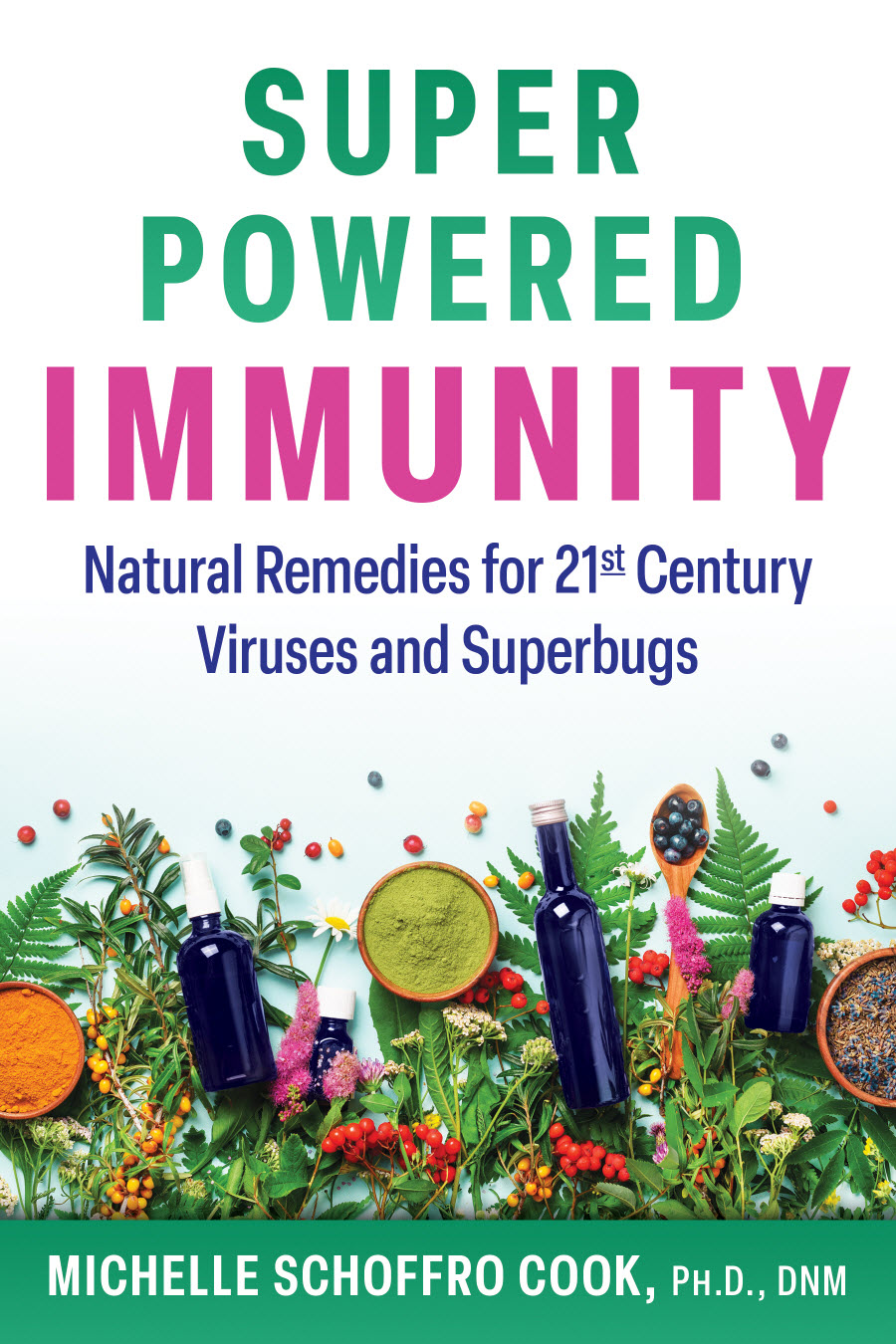Probiotics and Fermented Foods
Pro-Powered Microorganisms
You may have heard the adage that great health begins in the gut. When it comes to building a powerful immune system, that couldn’t be truer. Your gut actually houses approximately 70 percent of your immune system. Located within your gut, there are an enormous number of immune system cells that combine to make gut-associated lymphoid tissue (GALT). Some of these immune cells include: B-cells, T-cells, and macrophages, among others.
This first-line defense system works remarkably well until it becomes damaged or impaired in some way. Perhaps we overuse or misuse antibiotics or other medications, drink insufficient amounts of water, eat excess sugar, eat prepared or processed foods replete with chemical preservatives and colors, eat excessive amounts of meat including processed types, live a sedentary life, or participate in some other lifestyle factors that can damage the gut tissue and throw off its delicate microbial balance. But, it’s not all doom and gloom.
The great news is that our bodies are miraculous in their ability to heal when we give them what they need to do so. One of the best things we can do for a healthy gut and immune system is help to restore microbial balance through the use of natural food and beverage choices, exercise, and getting more probiotics in our diet. Probiotics are “live microorganisms that, when administered in adequate amounts, confer a health benefit on the host.” They are readily available in fermented foods like sauerkraut, kimchi, miso, yogurt, kombucha, and other foods, provided they have not been pasteurized and, of course, are also available in supplement form.
In this chapter, we’ll explore some of the best ways to get more probiotics and prebiotics into your diet to help restore gut health and immune health. It’s interesting to note that a growing body of research is also finding that specific probiotics may be useful to target particular harmful bacteria or viruses, a revolutionary new approach to super- immunity that I discuss in my upcoming book Super-Powered Immunity Starts in the Gut.
Before we delve deeper into the microscopic world of probiotics and prebiotics, let’s first discuss your microbiome and why it is important to maintaining strong health.
WHAT IS A MICROBIOME?
Our bodies contain over one trillion microscopic bacteria from approximately one thousand species, which are collectively known as our microbiome. Before you gasp with disgust, it’s important to know that these microbes not only keep you healthy, they ensure your survival. And, within our overall microbiome, we have collections of micro- organisms that are unique to our face, right hand, intestines, or other part of our body, each of which is a smaller microbiome within the larger one. Similar to a fingerprint, our microbiome is unique to us. No one else has exactly the same microbiome as you. And, even your left and right hands have unique microbiomes.
And, as scientist Philip C. Calder stated in his study published in BMJ Nutrition, Prevention & Health, “The gut microbiota plays a role in educating and regulating the immune system.” This seemingly simple, but profound, statement might give you some insight into the importance of ensuring a healthy gut replete with beneficial bacteria, since they will help to train and regulate your immune system.
INTRODUCING THE PROS – PROBIOTICS, THAT IS
If you look on the label of a bottle of probiotics or the ingredients in a package of yogurt, one of the first things you’ll see are the various probiotics in the genus Lactobacillus, which are usually listed on food packaging as L., followed by the various strains, such as L. acidophilus,
L. bulgaricus, and others. These probiotics tend to have an affinity for the small intestines. Lactobacilli convert various types of sugars to lactic acid. They are commonly found in many fermented foods like yogurt, fermented vegetables, sauerkraut, and fermented fruits, as well as fermented beverages like kombucha (a fermented beverage usually made from green or black tea). They are also found in sourdough baked goods, and while these bacteria assist in the digestion of sourdough baked goods, they are killed by the heat of the baking process so there are none remaining in the final product. You may still benefit from the easier-to-digest final baked good, however.
You’ll also see strains of Bifidobacteria listed on an ingredient label as B. bifidum, B. breve, B. infantis, and so on. These probiotics tend to have an affinity for the large intestines. There are approximately seven times as many Bifidobacteria than Lactobacilli present in a healthy adult gut. Newborn babies who have been breastfed tend to have an especially large number of these bacteria in their gastrointestinal tract, which helps them to fight off harmful childhood infections. They are strong immune boosters that tend to be found in yogurt, fermented vegetables, sauerkraut, and kombucha.
You may also see other strains such as Saccharomyces boulardii (S. boulardii), which is a beneficial type of yeast and, as such, is included among probiotics. They are different from the varieties of yeast that cause yeast infections, so there is no concern about them contributing to a yeast infection if you have one.
REASONS TO BOOST THE GOOD BUGS IN YOUR MICROBIOME
If you haven’t been living in a cave or somewhere in the wilderness for the last several years, you’ve probably noticed that wherever you look on television, online, magazines, and in grocery and health food stores pro- biotics have popped up in products everywhere. As the exciting research about microbiomes and the importance of maintaining a healthy microbial balance appears, so do probiotic products. So, you may be wondering, what’s all the fuss about probiotics? Here are some of the benefits of probiotics as well as reasons for incorporating more of them in your diet and boosting their ability to proliferate in your gut:
- Probiotics help restore microbial balance after it has been disrupted due to antibiotic use or poor food choices.
- Probiotics create compounds that destroy harmful
- Probiotics strengthen immunity in the gut to bolster the body’s own immune response.
- They decrease inflammation in the gut, which in turn helps to reduce inflammation throughout the body.
- Probiotics help to program the immune system, yielding more balanced immune responses.
- They improve the mucosal barrier in the gut and its functioning to prevent harmful infections from entering the Some probiotics seem to prevent the ability of harmful bacteria, including H. pylori, from adhering to the walls of the GI tract, thereby preventing the ability of the harmful microbes to survive.
- Probiotics help to regulate genetic expression for
- They create valuable nutrients needed by the body for strong immune health and overall health.
- They prevent harmful microbes from adhering to various locations in the body, such as in the gut wall.
- Bacteria in the Lactobacillus genus have been found to reinforce the protective functions in the stomach and GI tract by maintaining bacterial balance.
The simple addition of more probiotic-rich food or probiotic supplements can offer a wealth of health advantages.
CAN TAKING PROBIOTICS WITH ANTIBIOTICS HELP?
If you’re like most people, you’re probably familiar with some of the more immediate side-effects of taking antibiotic drugs, including GI distress, intestinal bacterial overgrowth, and diarrhea.
Antibiotics cause diarrhea and other gastrointestinal issues because they indiscriminately kill harmful and beneficial bacteria alike. Taking probiotic supplements during and after a course of antibiotics can help reduce the damage to the gut microbiome and the GI symptoms, and may prevent opportunistic infections like C. diff. that some people experience while taking antibiotics. Diarrhea, one of the common symptoms of antibiotic use, is also one of the main symptoms of C. diff infections. Plentiful amounts of research support the use of probiotics alongside antibiotics. In a Finnish study, researchers found a correlation between a higher dose of probiotics and a lowered incidence and duration of diarrhea experienced by people taking antibiotic drugs. Study participants taking probiotic supplements also had fewer fevers, abdominal pain, and bloating.
In a study published in JAMA: The Journal of the American Medical Association, researchers found that a probiotic supplement containing Lactobacillus, Bifidobacterium, Saccharomyces, Streptococcus, Enterococcus, or Bacillus bacteria was helpful in overcoming antibiotic- related symptoms. A separate Swedish study found that Lactobacillus plantarum (L. plantarum) was also helpful when taken as a supplement during antibiotic treatment.
Taking probiotics whenever you’re following a course of antibiotics isn’t just beneficial to reduce the side effects of antibiotics, they can provide additional protection against infectious diseases as well. Because many antibiotics are waning in their effectiveness against harmful microbes, probiotics provide an extra line of defense against harmful infectious diseases. While the use of probiotics as a weapon against infectious disease is fairly novel, a growing body of research shows that probiotics offer antibacterial, antifungal, and antiviral support for your body as well as the well-documented other health benefits to your body.
PROBIOTICS TO THE RESCUE
We already know that our immune system has a wealth of strategies and warriors against infectious disease, but we also know that some- times our immune system needs a boost. Can you imagine a whole army of bacteria showing up as extra troops in the battle against infectious disease? Increasing amounts of research are showing us that probiotic bacteria (and to a lesser extent, some beneficial yeasts) can not only support your immune system to ensure your health, but can actually wage war against specific harmful invaders too.
Part of their anti-infectious magic lies in the fact that probiotics compete with harmful, disease-causing microbes for space, nutrients, and even the ability to attach to human hosts, according to research. It turns out that probiotics thrive at the expense of harmful microbes, like the viruses behind some of our common illnesses, causing these viruses to die. A reduction in symptoms and illness are the side effects of their battle. You won’t find that side effect on the pages-long list of side effects for drugs.

Excerpt from: Super-Powered Immunity
Natural Remedies for 21st Century Viruses and Superbug
by Michelle Schoffro Cook, Ph.D., DNM
published by Inner Traditions International and Bear & Company, ©2022. All rights reserved. http://www.Innertraditions.com Reprinted with permission of publisher.

